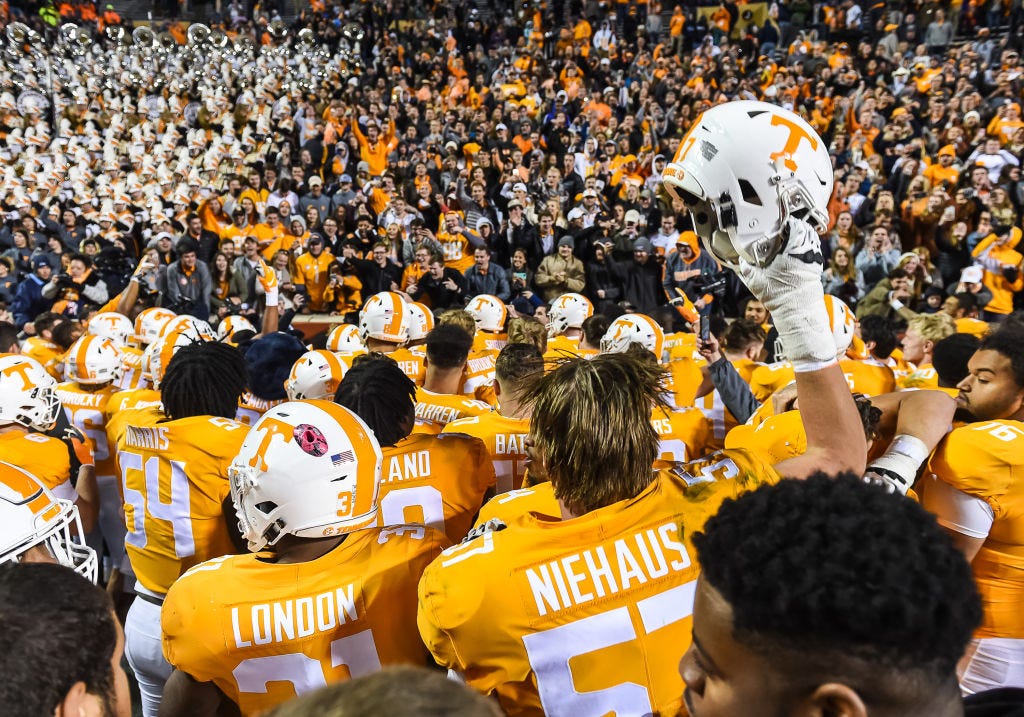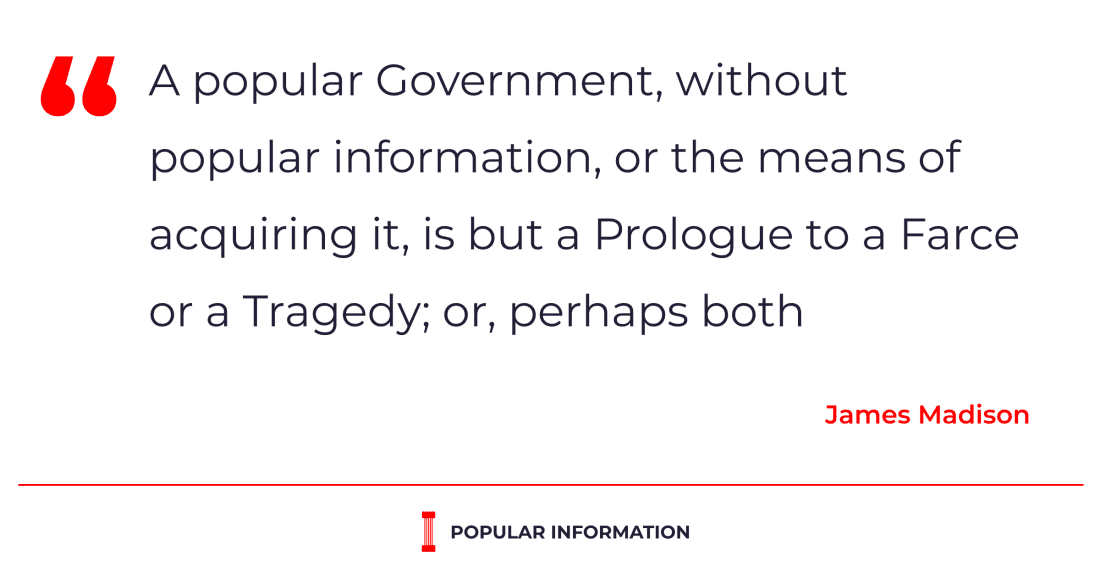Greed infects college football

Photo by Bryan Lynn/Icon Sportswire via Getty Images
College football athletes do not get paid. And even among Division I programs, just 3.8% of football players will be drafted into the NFL. To put that in perspective, out of a typical Division I roster of 125 players, about five will get a shot a professional career. Most of the young people who strap on a helmet do not have a payday in their future.
Nevertheless, the most prominent Division I football programs are pressing ahead with plans to play games during a deadly pandemic. Eighteen-year-olds are being pushed onto the field so they can continue to generate millions for adults and major corporations.
For example, the SEC, a conference of 14 large institutions across the South, "brought in $720.6 million in revenue for the fiscal year ending last Aug. 31," mostly from football. The SEC's commissioner, Greg Sankey, was paid $2.6 million in total compensation.
Sankey announced last week that the conference would proceed with a football schedule of "10 games per each of its 14 teams, all within the conference, beginning near the end of September." According to protocols drafted by the NCAA and the five major football conferences (ACC, Big 10, Big 12, Pac 12, SEC), football players will be tested weekly "within 72 hours of games."
This level of testing cannot reasonably be expected to protect the safety of players. The 72-hour turnaround time creates a significant gap in the protocol where the virus can spread undetected. During that time, the players would be in a campus environment where infections can spread easily. This is particularly concerning for the SEC, which includes schools in Florida, Texas, and other states with high levels of community spread.
In a private meeting with SEC players, conference officials acknowledged that the plan in place would inevitably result in a significant number of players contracting the coronavirus. "There are going to be outbreaks. We’re going to have positive cases on every single team in the SEC. That’s a given. And we can’t prevent it," one official said, according to audio obtained by the Washington Post.
The plan, for the SEC and other major conferences, is to push ahead with football season regardless.
It's already too late
The COVID-19 protocols for major football conferences are just now being released. They are long overdue. Football players began returning to campus in early June. Already, "[m]ore than a dozen college football teams — with Michigan State, Colorado State and Rutgers among the latest — have been forced to abandon football workouts over the summer after outbreaks."
Michigan State ordered "its entire football team quarantine after a second staff member and one athlete tested positive for the novel coronavirus" in late-July. Last week, Penn State announced that eight athletes had tested positive, but the school did not break down the positive tests by sport.
Players speak out
During the meeting with SEC officials, several players raised serious concerns about their health and safety. “For so much unknown in the air right now, is it worth having a football season without certainty?” one player asked. "Part of our work is to bring as much certainty in the midst of this really strange time as we can so you can play football in the most healthy way possible, with the understanding there aren’t any guarantees in life," Sankey replied.
MoMo Sanogo, a linebacker at the University of Mississippi, expressed concerns about mixing with the general student population, which will return to campus in the fall. Sanogo said he feared "some of those classmates will go to bars and parties at night, then unknowingly infect football players during class." Officials put the onus back on Sanogo, telling him to "try to encourage others to act more responsibly." The officials also recommended that he "sit in the back of class" and avoid conversations.
Another athlete asked: "What information do you have about the lasting effects on players who may contract COVID?” Shawn G. Gibbs, dean of Texas A&M’s School of Public Health, said he couldn't answer because he was an "industrial hygienist" not a "medical person." Marshall Crowther, a sports medicine physician at Mississippi, acknowledged "growing concerns among medical experts about how the virus affects people’s hearts but said there has not been enough time to conduct long-term studies."
A group of players from the Pac-12, another major conference charging ahead with football season, wrote an open letter expressing their concerns and demanding change. "[W]e are being asked to play college sports in a pandemic in a system without enforced health and safety standards, and without transparency about COVID cases on our teams, the risks to ourselves, our families, and our communities," the student-athletes wrote.
The letter also listed a series of demands, including enhanced health protocols, reduced salaries for administrators, and the distribution of "50% of each sport’s total conference revenue evenly among athletes in their respective sports."
Alleged retaliation
Kassidy Woods, a wide receiver at Washington State, alleges he was "removed from the team" after he told head coach Nick Rolovich that he one of the athletes from the Pac-12 that was involved in the open letter. According to Woods, "he called Rolovich to inform him he had decided against playing this season because of concerns related to COVID-19." Rolovich replied that "he could accept that but then asked Woods if he were part of the Pac-12 athletes group." When Woods said that he was, Rolovich "made it clear that remaining aligned with a group of athletes threatening to sit out over issues that include compensation and social justice would jeopardize his future with the team." Woods was told to "to clear out of his locker" and removed from the team's group chat.
Three other Washington State players say their status with the team is uncertain because of their affiliation with the social justice group.
Smaller conferences bow out
Not all conferences think football is worth the risk. Smaller conferences, without lucrative TV deals, have already canceled or postponed their seasons.
At the beginning of July, The Ivy League announced that it was suspending its fall football season, making it the first Division I conference to suspend football. Since then, other conferences have followed suit. The Patriot League, a Division I conference that includes Holy Cross, Fordham, and Georgetown, has canceled all fall sports, including football. The Mid-Eastern Atlantic Conference and The Southwestern Athletic Conference – Division I conferences comprised of historically Black colleges and universities – are also holding off their football seasons and instead exploring options to resume in the spring.
Meanwhile, The Colonial Athletic Association (CAA), which features football powerhouses James Madison University and Elon University, voted to cancel its football season. The CAA, however, is giving members the option of pursuing independent football schedules. Most recently, The Northeast Conference, another Division I conference, announced on July 29 that it was also postponing its football schedule for an indefinite period and plans to re-evaluate options on October 1. Several other Division II and Division III are also suspending their fall football seasons.
Thanks for reading!



Greed is one of the seven deadly sins. Certainly could be for football, fans and players. Not to mention back to school in general. Donald Trump can be blamed. His mishandling of everything he touches encourages public bad instead of good.
Those if his ilk jump on the band wagon in all facets of life.
Years ago, before there was no discussion of playing hazards, my husband saw playing any kind of sport well but primarily football, would get him off the farm and into a better life. This is what drives so many kids today and has now for generations. As a consequence of his decision he played varsity ball in high school, college and almost two full years playing pro ball in Canada. He sustained a career-ending injury during his second year and spent the next 4 years in his own personal hell until an orthopedic surgeon could put him back together, sort of.
This intro is written because long before COVID, sports and the powers that be promoting them have always been about the all mighty dollar. Yes, they drape it in the cloak of the selfless student athlete but we have seen way too many times how these young, hungry, and impressionable kids are abused and it’s all for the money. Over the years we’ve heard of former athletes graduating barely being able to read, badly injured and left without their scholarship money to finish at school, promoted like a piece of meat, or spoiled so much that they think they can get away with lawless activities. A lot of schools end up in trouble over such crass abuse.
So this is not new. Money in amateur sports has been a thing for years. Playing with COVID is just another “thing”.